The Philippines' America-hating, criminal-murdering president, explained
Meet Rodrigo Duterte

President Rodrigo Duterte has encouraged a wave of vigilante killings across his nation. Why is he so popular? Here's everything you need to know:
What's Duterte doing?
Since he took office at the end of June, President Rodrigo Duterte has unleashed the police and vigilante hit squads against suspected drug dealers. "My order is shoot to kill you," he said. "I don't care about human rights, you'd better believe me." In just two months, more than 1,900 people have been summarily executed in the streets. Most of them were suspected low-level drug dealers, but some were bystanders caught in the crossfire; the youngest was a 5-year-old. Duterte, 71, has not only thumbed his nose at the Philippines' rule of law, he has also threatened those who criticize his tactics. He's fired thousands of government workers, saying they were all corrupt, and pledged to fill the jobs with his own loyalists. He has already insulted the U.S. ambassador, and warned President Obama not to question the wave of killings, adding, "Son of a bitch, I will swear at you." As a result, Obama cancelled a meeting with Duterte planned for this week.
Subscribe to The Week
Escape your echo chamber. Get the facts behind the news, plus analysis from multiple perspectives.

Sign up for The Week's Free Newsletters
From our morning news briefing to a weekly Good News Newsletter, get the best of The Week delivered directly to your inbox.
From our morning news briefing to a weekly Good News Newsletter, get the best of The Week delivered directly to your inbox.
How did he come to power?
For 22 years, he was mayor of Davao City, in Mindanao, a Philippine island plagued by a long-running Islamic insurgency. A trash-talking populist who says he hates career politicians, Duterte was known in Davao City for his blatant womanizing, and for his success in fighting crime. When he took office in 1988, Davao was the murder capital of the Philippines, but now it is one of the country's safer cities. He accomplished that feat by living up to his nickname, "The Punisher." Death squads loosely aligned with city authorities roamed the streets on bicycles, shooting suspected drug dealers on sight. Hundreds of people were killed, but the crime rate dropped, and Duterte was elected seven times.
How did he become president?
The campaign this spring was bitter. Outgoing President Benigno Aquino, who had presided over five years of economic growth, endorsed Wharton-educated investment banker Manuel Roxas to succeed him. But Duterte painted the little-known Roxas as part of the corrupt establishment and said that the Philippines under Aquino was becoming a "narco state." He pointed to evidence that Mexico's fearsome Sinaloa cartel was using the Philippines as a transit shipment point, and bemoaned his country's rampant abuse of methamphetamines, marketed there mixed with caffeine and known as shabu. The drug has devastated many Manila neighborhoods, where some of the local police are in the pay of drug gangs. An alarmed Aquino told voters to "remember how Hitler came to power." But Duterte won a five-way race in a landslide, with nearly 40 percent of the votes to Roxas' 23 percent.
How are people responding?
The most recent poll — showing a 91 percent approval rating — was completed just a week after he took office, so it doesn't reflect the wave of killings that followed. But anecdotal evidence indicates that Duterte's kill-them-all strategy is both effective and popular. Fearing for their lives, more than half a million suspected drug dealers and users have surrendered to police in the past few weeks. The political mainstream, though, is horrified by the street shootings. "This is like anarchy," said Sen. Antonio Trillanes.
What is his policy toward the U.S.?
Duterte resents the Philippines' history as a former U.S. colony, occupied from 1898 to 1946. (See below.) A self-described socialist, he wears his anti-Americanism like a badge of honor, pointedly meeting with envoys from Japan and China before those from the U.S. He called U.S. Ambassador Philip Goldberg "this gay ambassador, son of a whore" after Goldberg criticized him for his recent comments on the rape and murder of an Australian missionary, which occurred while Duterte was mayor of Davao. "I was angry because she was raped, that's one thing," Duterte had said. "But she was so beautiful, the mayor should have been first. What a waste." He has brushed aside U.S. criticism of the killings on his watch, saying, "Why are you Americans killing black people there, shooting them down when they are already on the ground?"
Will he abandon the alliance?
No. Duterte has said he wants closer economic ties with China, the country's second-largest trading partner, after Japan and before the U.S. Yet the U.S. is still the Philippines' largest source of foreign investment, and Duterte doesn't want to jeopardize that inflow. He has also conceded that the U.S. is his country's only major military ally — at a time when China is pressing claims to islands in the South China Sea that the Philippines considers its own. Last month, Duterte said he would abide by a defense pact signed by his predecessor that allows U.S. forces to operate from Philippine territory. But he's also made it clear he doesn't feel that he owes the U.S. anything in return for its military protection. "I am no American puppet," he said this week. "I am the president of a sovereign country, and I am not answerable to anyone except the Filipino people."
How Duterte's resentment started
Duterte has said he still feels "hatred" for the U.S. for a 2002 incident in Davao, while he was mayor. An American treasure hunter named Michael Meiring, who sometimes joked he was with the CIA, was charged with possession of explosives after a metal box in his hotel room blew up, tearing one of his legs off. Philippine officials said FBI officials snatched Meiring from the hospital in the night and flew him out of the country. Duterte was furious, saying Meiring was a criminal suspect, possibly a spy or a terrorist, and that the U.S. had no right to violate Philippine sovereignty by removing him. Meiring had frequently traveled to areas where Islamic separatists were active, possibly as part of a U.S. campaign against the Abu Sayyaf, a rebel gang of kidnappers operating from the jungle that recently swore allegiance to ISIS. In the Philippines, it's widely believed Meiring was conducting bombings that could be blamed on the rebel group, to increase pressure on the Philippine government to permit greater U.S. involvement. Meiring died in 2012 without ever explaining why he was in the Philippines and carrying a bomb.
Create an account with the same email registered to your subscription to unlock access.
Sign up for Today's Best Articles in your inbox
A free daily email with the biggest news stories of the day – and the best features from TheWeek.com
-
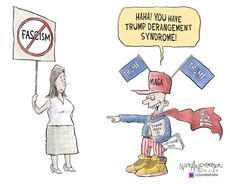 Today's political cartoons - April 14, 2024
Today's political cartoons - April 14, 2024Cartoons Sunday's cartoons - Trump Derangement Syndrome, social media dangers, and more
By The Week US Published
-
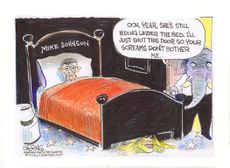 5 rambunctious cartoons about the House speakership standoff
5 rambunctious cartoons about the House speakership standoffCartoons Artists take on Mike Johnson's night terrors, the Speaker's chair, and more
By The Week US Published
-
 The Week Unwrapped: Ultrarunning, menswear and a meaty row
The Week Unwrapped: Ultrarunning, menswear and a meaty rowPodcast Is the "Hardest Geezer" a high-endurance trendsetter? Will Ted Baker survive? And what's the beef with lab-grown meat?
By The Week Staff Published
-
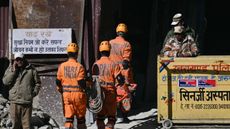 Puffed rice and yoga: inside the collapsed tunnel where Indian workers await rescue
Puffed rice and yoga: inside the collapsed tunnel where Indian workers await rescueSpeed Read Workers trapped in collapsed tunnel are suffering from dysentery and anxiety over their rescue
By Sorcha Bradley, The Week UK Published
-
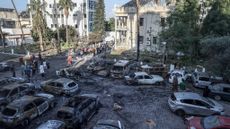 Gaza hospital blast: What the video evidence shows about who's to blame
Gaza hospital blast: What the video evidence shows about who's to blameSpeed Read Nobody wants to take responsibility for the deadly explosion in the courtyard of Gaza's al-Ahli Hospital. Roll the tape.
By Peter Weber, The Week US Published
-
 Giraffe poo seized after woman wanted to use it to make a necklace
Giraffe poo seized after woman wanted to use it to make a necklaceTall Tales And other stories from the stranger side of life
By Chas Newkey-Burden, The Week UK Published
-
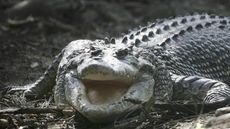 Helicopter sound arouses crocodiles
Helicopter sound arouses crocodilesTall Tales And other stories from the stranger side of life
By Chas Newkey-Burden, The Week UK Published
-
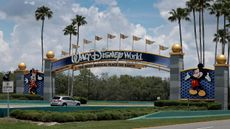 Woman sues Disney over 'injurious wedgie'
Woman sues Disney over 'injurious wedgie'Tall Tales And other stories from the stranger side of life
By Chas Newkey-Burden, The Week UK Published
-
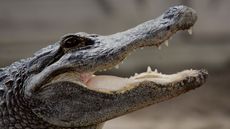 Emotional support alligator turned away from baseball stadium
Emotional support alligator turned away from baseball stadiumTall Tales And other stories from the stranger side of life
By Chas Newkey-Burden, The Week UK Published
-
 Europe's oldest shoes found in Spanish caves
Europe's oldest shoes found in Spanish cavesTall Tales And other stories from the stranger side of life
By Chas Newkey-Burden, The Week UK Published
-
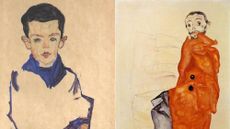 Artworks stolen by Nazis returned to heirs of cabaret performer
Artworks stolen by Nazis returned to heirs of cabaret performerIt wasn't all bad Good news stories from the past seven days
By The Week Staff Published